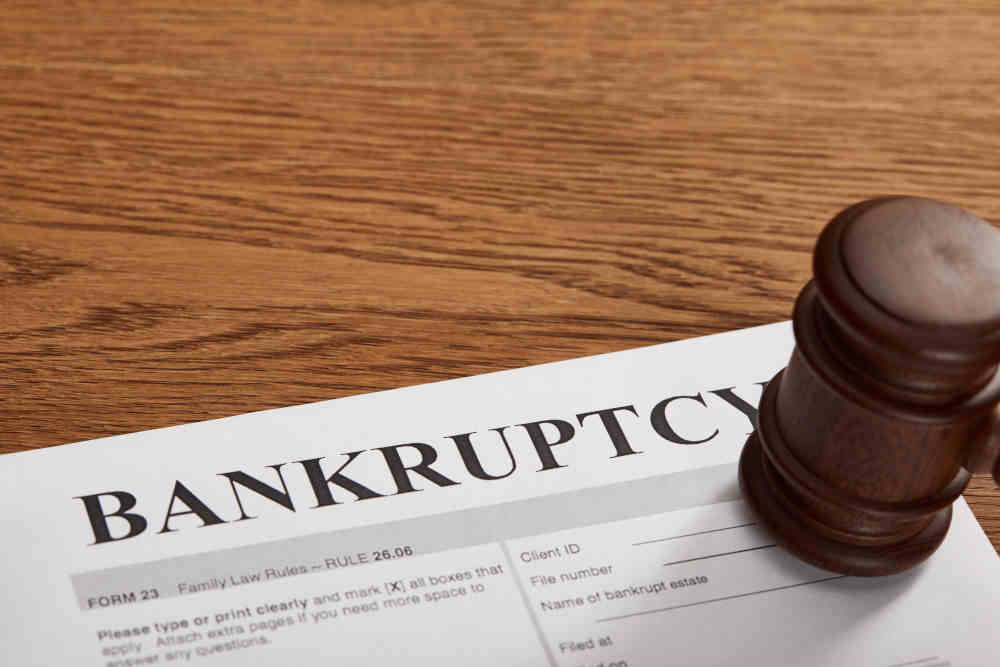Many things can happen in your life that can lead to financial distress. For some, the best solution for these financial problems is to seek protection from your creditors through bankruptcy, and a bankruptcy lawyer can assist you through the process.
There are two types of bankruptcy filings that individuals can use to seek protection from their creditors, Chapter 7 and Chapter 13. Other chapters of bankruptcy are reserved for businesses, farmers, and other entities.
Chapter 7 Bankruptcy
Chapter 7 is usually referred to as total bankruptcy. As a person in financial trouble, you petition the court to dissolve all of your unsecured debts. You can claim Chapter 7 for all debts not secured by property or other financial instruments.
The types of debts generally included in a Chapter 7 bankruptcy include:
- Credit card debt
- Unsecured loans
- Medical bills
- Unpaid utility bills, including phone bills
- Balances owed after a foreclosure
Debts that cannot be included in a Chapter 7 filing:
- Tax debt, including liens
- Child support or alimony
- Student loan debt
- Debts from a personal injury claim against you
Chapter 7 also has an income guideline that must be met. For single people, your income cannot exceed $84,952.00. If your income is above this level, you may be forced to file for Chapter 13.

Chapter 13 Bankruptcy
Chapter 13 bankruptcy is often referred to as restricting bankruptcy. This is because you approach the court and ask if they will restructure your debts so that you can afford to repay them.
This chapter of bankruptcy is designed for homeowners to keep their homes and continue to pay the mortgage. This also allows you to keep a car for work purposes.
Chapter 13 will restructure all of your debts into a more affordable monthly payment. This applies to all secured debt first. Then, if there is available money, the court may include unsecured debt as part of the debt restructuring. In most cases, the unsecured debt is dissolved.
Once the court reaches a monthly payment amount for the debts, you will have to agree to the program and pay the court each month until the repayment plan is completed. This can take three to five years to complete.
During the repayment period, you cannot miss any of the payments. If payments are missed, the court can take action and rescind the protection they have provided from your creditors.
Once you have completed the repayment program, the court will absolve any outstanding debt that was still part of the filing, and you will be debt-free from the past financial problems.
Why You Need A Bankruptcy Lawyer
Bankruptcy claims are complex legal issues. Creditors can be very aggressive in their collection efforts, even after being notified of your filing. The best way to get protection from your creditors and file a successful claim is with the assistance of an attorney.
Your attorney can ensure that all debt that can be dissolved as part of your bankruptcy is included. Many people who try to file bankruptcy on their own overlook debts that can be included. This defeats the purpose of bankruptcy protection.

An attorney can manage all interactions between you and your creditors. This means that they can stop all of the harassing phone calls and demand letters that you are currently receiving. This also means that if your creditor decides to fight the bankruptcy, you will have legal representation fighting the challenge.
Having a bankruptcy lawyer manage your case also ensures that all your paperwork is completed correctly and filed on time. It also ensures that all court requests are completed promptly. Unfortunately, many bankruptcies are denied just because the paperwork was completed incorrectly or filed late.
The final benefit of having an attorney manage your bankruptcy case is that you will benefit from their knowledge and experience. In addition, your attorney will make sure that all debts that can be included in your filing are present so that you can get the most benefit from the procedure.
Your attorney will make sure that you file the right chapter of bankruptcy to receive the correct type of protection. If you want to keep your home, you must file the correct chapter, or you could be forced to sell.
Your attorney will also be able to provide you with answers to your questions about what to expect while the bankruptcy is in process and what to expect once it is over. If you think that bankruptcy is the only solution to your current financial situation, speak with a bankruptcy attorney. You will get the necessary information so that you can make an informed decision about your finances.

